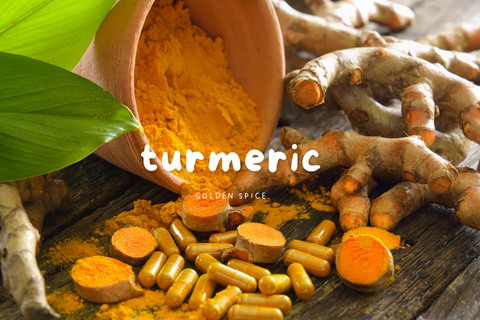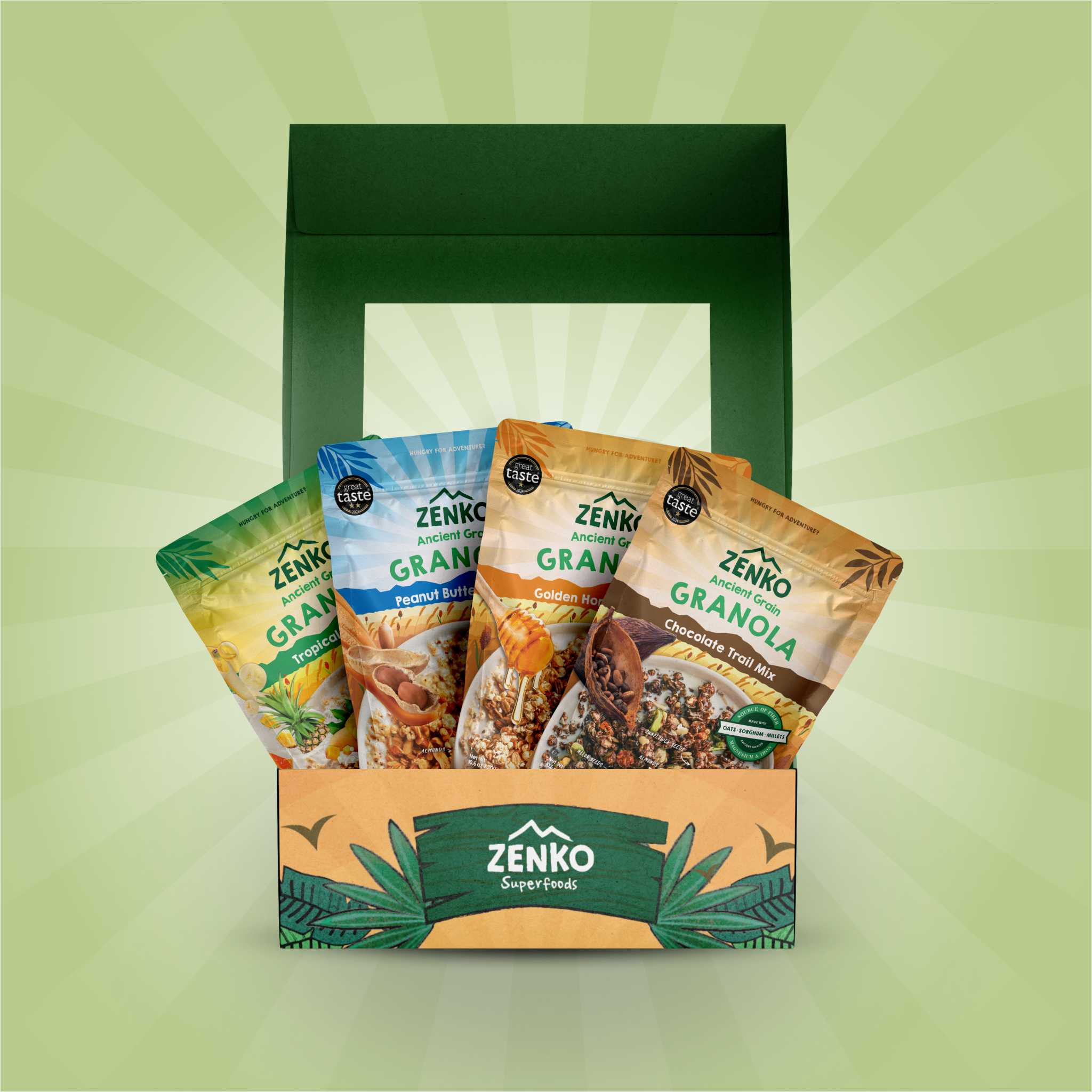The History of Turmeric
Turmeric, scientifically known as Curcuma longa, has been cherished in India and other parts of Asia for thousands of years. Often referred to as "the golden spice," turmeric is celebrated for its deep-rooted significance in traditional medicine and cultural practices.
In Sanskrit, it is called हल्दी (Haldi), highlighting its importance in Ayurvedic traditions and its association with purity and health.
In Chinese, turmeric is known as 姜黄 (Jiānghuáng), meaning "ginger yellow," which reflects its vibrant color and ties to the ginger family.

In India, turmeric is a key component in most Vedic rituals and plays a vital role in various medicines developed within traditional systems such as Ayurveda and Siddha, as well as in numerous ethnic and folk healing practices.
It is believed to embody the energy of the Divine Mother and to bestow prosperity. It is commonly applied as a topical paste by brides to achieve a radiant glow and invite blessings into their marriage. Whole turmeric roots are sometimes sculpted into the likeness of Ganesha, the elephant-headed deity of prosperity and success, to invoke the strength to overcome obstacles.
Additionally, turmeric holds a prominent place in yogic traditions, where it is employed to support ligaments and cleanse the nadis and chakras, the subtle energy channels and centers of the body.
This sacred spice was believed to have healing properties and was bestowed upon the Earth as a gift to humanity. Because of this divine origin, turmeric is often used in rituals and ceremonies, symbolizing purity, protection, and the blessings of abundance.
The Characteristics of Turmeric
If you've ever wondered about the origin turmeric, you're not alone. Is it a root? A vegetable? Or perhaps a herb?
While often mistaken for a root, turmeric is actually a rhizome, an underground stem similar to ginger. Both turmeric and ginger are renowned for their potent health benefits and have been used for centuries in traditional medicine due to its abundant health benefits.
Turmeric contains several key chemical compounds known as curcuminoids, which include curcumin (diferuloylmethane), demethoxycurcumin, and bisdemethoxycurcumin.
Among these, curcumin is the most extensively researched and is the primary active ingredient in turmeric powder. A powerful antioxidant and anti-inflammatory compound that can help combat disease and bolster the immune system.

What Benefits Does Turmeric Provide?
Turmeric is renowned for its potent health benefits, primarily attributed to its active compound, curcumin. Regular use of turmeric can contribute to enhanced overall health and vitality.
Turmeric is celebrated for its anti-inflammatory properties, making it beneficial for individuals suffering from chronic inflammatory conditions such as arthritis. By reducing inflammation, turmeric can help alleviate pain and discomfort, promoting a better quality of life.
Incorporating turmeric supplements into your daily routine can be an effective way to harness its holistic benefits, enriching your health from within.
Benefits
- Powerful anti-inflammatory effects: One of turmeric's most celebrated benefits is its ability to reduce inflammation in the body. By inhibiting inflammatory pathways, turmeric can alleviate discomfort associated with conditions such as arthritis and muscle soreness.
- Rich in antioxidants: Turmeric is packed with antioxidants, which help combat oxidative stress. This supports immune function and promotes overall health by reducing the risk of chronic diseases.
- Promotes healthy digestion: Turmeric aids digestion by stimulating bile production, improving the absorption of nutrients. It can help relieve symptoms of indigestion, bloating, and gas, enhancing gastrointestinal comfort.
- Immune System Booster: The antioxidant and anti-inflammatory properties of turmeric work together to strengthen the immune system. Regular consumption may help the body defend against infections and illnesses.
- Radiant Skin: Turmeric's anti-inflammatory and antioxidant properties can help soothe skin irritations, reduce redness, and promote a clear, glowing complexion.
- Heart Health: Turmeric's warming properties can help stimulate blood circulation and support heart health.

Turmeric and Ayurveda
In Ayurveda, turmeric is utilized to harmonize all three doshas—vata, pitta, and kapha. However, excessive consumption can aggravate pitta and vata. Turmeric is characterized by its bitter taste (rasa), astringent energetic effect (virya), and a pungent, heating post-digestive effect (vipaka).
Turmeric particularly benefits Rasa Dhatu and Rakta Dhatu, which are the tissues related to blood, plasma, and lymph. It imparts a soothing and cooling quality to these tissues while simultaneously enhancing their healthy flow and function.
Due to its warming properties, turmeric possesses a mobilizing and cleansing energy that naturally stimulates agni (digestion), aiding in the reduction of excess kapha and the elimination of ama (toxicity).
Beyond these functions, turmeric is traditionally used to support the liver, muscles and joints, immune system, and skin.

What is Turmeric good for?

- Support joint movement: Turmeric’s powerful anti-inflammatory effects make it beneficial for those experiencing discomfort related to conditions like arthritis and muscle soreness.
- Bolster the immune system: The combined antioxidant and anti-inflammatory properties of turmeric strengthen the immune system, helping the body fend off infections and illnesses.
- Digestive Support: Turmeric promotes healthy digestion by stimulating bile production, improving nutrient absorption, and alleviating symptoms of indigestion, bloating, and gas.
- Antioxidant: Turmeric can help soothe skin irritations, reduce redness, and promote a clear, glowing complexion due to its anti-inflammatory and antioxidant properties.
- People Focused on Heart Health: Turmeric’s warming properties stimulate blood circulation and support cardiovascular health, making it beneficial for those looking to maintain a healthy heart.
From its powerful anti-inflammatory effects to its ability to support digestion and boost immunity, turmeric is a truly invaluable addition to your health regimen.
How to Take Turmeric

Turmeric can be consumed in various forms to maximize its health benefits and easily incorporate it into your daily routine.
With its warm and earthy flavor, turmeric shines when used alone but also harmonizes beautifully with other ingredients, making it a versatile addition to many recipes.
-
Supplements: Incorporating turmeric into your routine can be as simple as taking daily capsules. This allows you to benefit from its powerful anti-inflammatory and antioxidant properties, supporting overall health and well-being.
-
Turmeric Powder: To enjoy the benefits of turmeric powder, mix it into warm water, milk, or smoothies. You can also let it steep for a few minutes to create a nourishing and flavorful tea.
-
Fresh Root: If available, grate fresh turmeric root and add it to dishes like stir-fries, soups, or salads for an extra burst of flavor and health benefits.
-
Turmeric Essential Oil: Use turmeric essential oil for aromatherapy or topical applications. It can be beneficial in massages for its anti-inflammatory properties, helping to soothe sore muscles.
Contraindications
Turmeric is typically regarded as safe during pregnancy when used in small amounts as a cooking spice. However, it is advisable to consult with your healthcare provider if you are pregnant or breastfeeding.
References
Banyan Botanicals. (n.d.). Sanskrit Glossary for Ayurvedic Terms. Retrieved from https://www.banyanbotanicals.com/pages/ayurvedic-glossary-of-ayurvedic-terms







